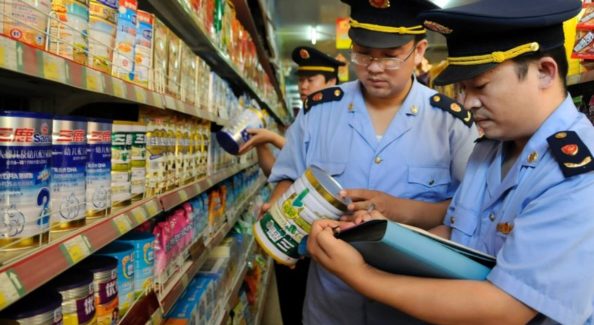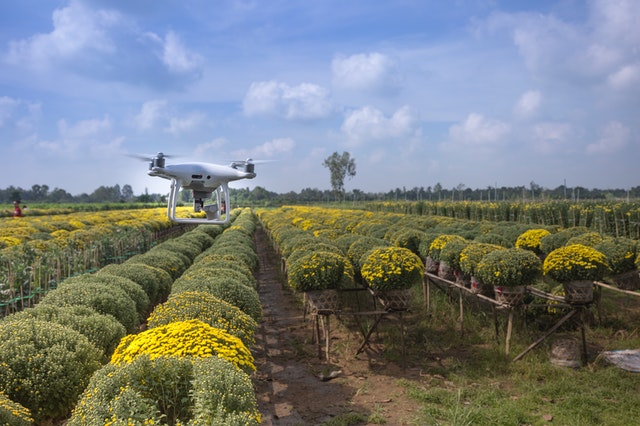With the largest population in the world – currently 1.38 billion – Food safety in China faces unprecedented challenges in feeding its population, even under the best circumstances. The population density, as well as the pressure coming from a growing global competition, are all factors increasing the food safety issue in China. The country’s agriculture workforce of millions flocks to cities and the diet of its population shifting towards a more affluent taste raise concerns in this industry. Over the last few years, Chinese consumers have had to contend with everything from tainted milk to expired meat; this has raised serious questions about the safe consumption of food in China. The quantity and quality of China’s food supply are one of the country’s most pressing problems. However, it also presents one of the biggest profit-making opportunities for companies and investors. China’s increasing demand for food is not only creating opportunities for farmers and producers but also putting a floor under the global prices for agricultural products.
Importance of Food Safety in China
The food safety is a growing concern in regards to the agriculture in China. China’s principal crops are rice, corn, wheat, soybean, and cotton as well as apples, and other fruits and vegetables. While the main livestock products in China include chicken, pork, beef, dairy, and eggs. The Chinese government already identified the biggest problems to face: agricultural production, manufacturing of food packaging, containers, chemical additives, drug protecti on and business regulation. Recently, the Chinese government made attempts to consolidate the food and safety regulation by establishing the State Food and Drug Administration of China in 2003, where officials have been under pressure domestically and internationally to solve the food safety problems.
on and business regulation. Recently, the Chinese government made attempts to consolidate the food and safety regulation by establishing the State Food and Drug Administration of China in 2003, where officials have been under pressure domestically and internationally to solve the food safety problems.
Scandals of Food in China
– Counterfeit baby formula (2004)
– Adulterated pickled vegetables (2004)
– Counterfeit alcoholic drinks (2004)
– Counterfeit drugs (2006)
– Pesticide residue (2006)
– Poisonous mushroom (2006)
– Sewage used in tofu manufacturing (2007)
– Fake eggs (2008)
– Meat scandal (2013)
– Expired meat sold globally (2014)
– Gutter oil (2014)
– Sodium Formaldehyde Sulfoxylate (2015)
From drain oil to melamine-tainted milk, and fake meat too contaminated strawberries, it seems that the list never ends when it comes to safety incidents in China. These scandals caused anxiety among domestic consumers. According to Pew Global Attitudes, 75% of Chinese people have considered food safety in China to be a big problem. Improving food safety in China is vital as Chinese food and ingredients from China are sold all over the world. According to CNN World News, author Katie Hunt expressed that in China, the food-processing plants fail to meet accepted international standards. Some factories do not have any basic idea of hygiene standards in which people even handle food with no gloves. A laboratory test even found abnormal levels of pesticides, additives, heavy metals, bacteria or viruses that could put consumers at risk. One of the most high-profile cases involves a U.S.- owned meat factory operating in China that charged for selling out-of-date and tainted meat to international clients such as McDonald’s, KFC, Starbucks and Pizza Hut chains. Even with the growing awareness, there have not been any concrete improvements concerning the lack of knowledge about contamination and hygiene standards as well as the education of staffed workers. With fragmented nature of China’s food chain, the country has 500,000 food production and processing companies, 70% of them with more than 100 employees, which makes it tough for authorities to manage and for foreign buyers to understand.
In 2015, China revised a Food Safety Law with the aim of strengthening the regulation of food companies in China and enhance the oversight of the supply chain. However, the challenge is not in setting rules but implementing them. The food industry is difficult to oversee, and food safety regulators face a range of potential hazards such as soil contamination, illegal additives, and unethical processes. Adding to that, as mentioned above, the Chinese government will have to deal with the fragmented domestic food industry. In truth, policymakers and consumers are tackling this issue, and food producers, as well as local governments, are held accountable if they fail to meet and enforce the health and safety standards issued. With more regulatory requirements and inspections, the supply chain will raise the costs for businesses. But this could prompt a consolidation which will allow domestic Chinese food industry to be more manageable. With fewer instances of food safety violations and greater supply chain transparency, product traceability would go a long way towards restoring consumers confidence in the food supply as well as trust in producers and regulators. Food safety in China will be essential to build a consumer-oriented economy to sustain a realistic level of growth rather than jeopardizes the global economy stability.
Stay Updated! Follow us on Twitter:
By 2020 the Market of Vitamin & Dietary Supplements in #China is Expected to Reach $22.3 Bil https://t.co/MuZhekGoep pic.twitter.com/GRBSVut13z
— Daxue Consulting (@DaxueConsulting) August 3, 2016
See also: Market Research in Indonesia





